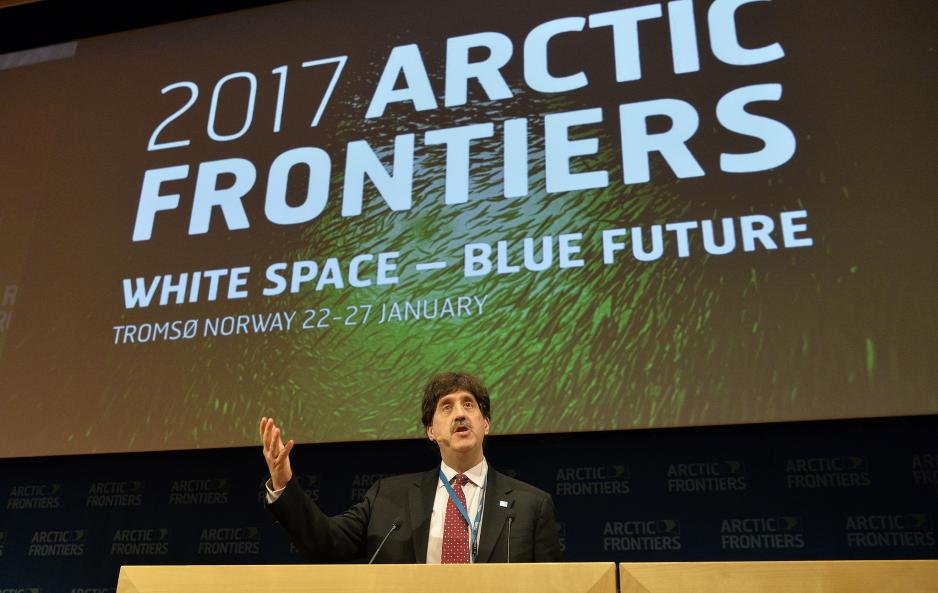Does not think the USA will change its Arctic policy

The Chairman of the Arctic Council and Senior Arctic Official (SAO) David Balton believes it is an advantage for the Trump administration that the USA has held the Chairmanship of the Arctic Council for the past two years.
- We saw that it took a little while for the Obama administration to start talking about Arctic issues, and it took even longer to start talking about it under George W. Bush. It is hard to tell when the Trump administration will start looking into it, but I believe the coming Council of Ministers of the Arctic Council in Fairbanks will be a good opportunity for our new Secretary of State to focus on it.
Balton thinks that the USA holding the Chairmanship during a change of presidency may be advantageous for the attention towards the Arctic.
- It could probably be easier to hold the Chairmanship of the Arctic Council without there being a change of president in the middle of the period, however, we knew it would happen when we were planning our Chairmanship period, and in our action plan we included items suitable for both sides. In this way, both the previous and the current administration can point at something and say, “look at what we did!” Balton says.
Advantageous timing
He believes the timing may be good, that the Trump administration’s attention towards the Arctic may be off to a flying start. And perhaps it is an advantage for the new president and his staff that the USA holds the Chairmanship of the Arctic Council right now.
- They have something related to the Arctic to talk about from the early days of their period, he says.
For the question all who are interested in the circumpolar north ask themselves these days, is simply: What does Trump want with the Arctic and how will the US level of engagement be from now on?
- I have no idea
When asked about this during Arctic Frontiers last week, Balton said straight out that he has no idea how it will be. But he also calmed those who may be concerned:
- But if I can talk as myself, as someone who has worked on this for more than thirty years, then America’s Arctic policy has not really changed much over the years.
During the Obama administration, a national strategy for the Arctic was mapped out, but the fundamentals from previous policies have been maintained. Therefore, Balton argues that there have not been any significant change in American Arctic policy during the past decades. Nor does he think there will be any dramatic changes ahead.
- The USA has deep and lasting interests in the Arctic, and they are based almost exclusively on Alaska. And since factors like people, economy and decision-makers in Alaska do not change even though a new President takes office, I don’t think it will change much. We have a vested interest in keeping the Arctic peaceful and stable, and I do not see that changing either, he argues.
Includes indigenous people
Balton also refers to the national policy that includes indigenous people in decisions made about the Arctic. He does not think that will change.
- It is also my view that any political leadership has to take the climate changes in the Arctic into account. The evidence is too convincing to ignore; you can just go there and see for yourself, whether in Alaska or somewhere else, he says.
Alaska has traditionally been a Republican state, and it holds great expectations to the national transfer of power. According to David Balton, complaints about the national authorities are frequently heard, where the federal authorities own much land.
- The Obama administration did many things that were unpopular in Alaska, and there are many who hope that Trump will reverse some decisions, Balton says.
A joy
The USA ends its Arctic Council Chairmanship in May, when Finland takes over. It means that a Finnish leader will replace Balton.
- It has been a joy to work on this, and we still have some work to do before Finland takes over, he says and refers to several ongoing projects, such as an analysis of the ice and permafrost, and a project investigating how the Paris Agreement will affect the Arctic if it is fully implemented.
- We have also managed to increase the attention about the Arctic, among others through taking our previous president to Alaska as the first sitting president ever. I think we have a lot to be proud of, he says in closing.
Les artikkelen på norsk.
